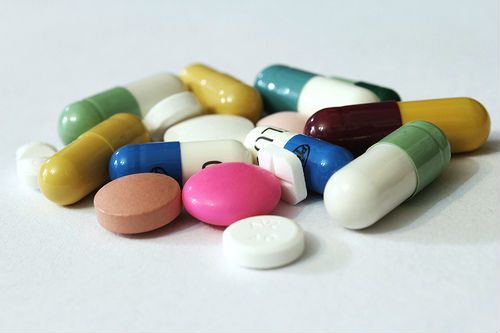Malaria is an infectious disease caused by the parasite Plasmodium Falciparum and malaria treatment measures involve a combination of supportive measures and specific antimalarial medication.
It should be noted though, that the World Health Organization (WHO) recommends that malaria treatment measures be based on the Microscopic and Rapid Diagnostic Tests (RDT) approach.
In case you have contracted malaria, you will be screened to analyze the infection before starting a course of treatment, as proper treatment ensures complete and timely recovery.

Malaria Treatment And The Measures It Involves
Malaria is a preventable, curable, and non-contagious disease. In some cases, its symptoms can turn into serious complications, particularly if the infection is wrongly diagnosed or treated. For this reason, it is highly important that your doctor pinpoints the specifics of your malarial infection and then prescribes the appropriate form of treatment.
The Deciding Factors Of Malaria Treatment
The basic malaria treatment measures required to counter the infection depend on the severity of the patient’s infection and the type of parasite that has caused it.
Generally, if there are no complications involved, the fever, a common symptom of malaria, will subside and disappear within a period of 36-48 hours. Subsequently, a majority of the parasites will be eliminated from the patient’s bloodstream within a period of 2-3 days.
Treatment strategies for malaria depend upon factors such as:
- Age
- Gender
- Overall health
- Specific existing conditions like diabetes, high blood pressure, and pregnancy
- Immunity and bodily resistance of the individual against malaria
Antipyretic Measures For Malaria Treatment
Fever is a common symptom of malaria, and for symptomatic relief, you can use antipyretic medication like paracetamol. In order to bring down the fever, you can also try a sponge bath as it helps in lowering the body temperature.
Other Supportive Measures
Your doctor will prescribe medication to alleviate your symptoms or at least reduce them to some extent. For example, if you have profuse vomiting, he is likely to prescribe anti-emetic medication that removes the problem. If you happen to have anemia, he will most likely prescribe iron tablets.
Treatment Of Uncomplicated Malaria
If you have been infected with P. Vivax, P. Ovale, or P. Malariae, then it is likely that you will be treated on an ambulatory basis in the outpatient department of a hospital or clinic. In this case, you may not require hospitalization as oral medication will be sufficient to cure you.
Malaria Treatment Options For Severe Cases
The most severe form of malaria is often caused by a P. Falciparum infection, and in such cases, it is highly likely that you will need to hospitalized and kept under close observation. The main reason for this is that you will require treatment with intravenous medication.
During the course of your malaria treatment, your physician may perform blood smears on a daily basis to keep regular tabs on your infection.
Malaria Treatment In Expectant Mothers
Contracting malaria during pregnancy is unsafe for both the expecting mother as well as the fetus. Hence, pregnant women with malaria must be treated on time with effective antimalarial medication to destroy the infectious parasites rapidly.
In such cases, where the infection is caused by P.Falciparum, doctors generally prefer intravenous drug administration over the intramuscular option.
Treatment Through Anti-Malarial Medication
There are different types of medication available for malaria treatment. Quinine has been the global antimalarial medication of choice for many years, due to its high efficacy and less cost.
With recent developments and due to the chloroquine-resistant nature of Plasmodium, certain other options have become available for malaria treatment, such as Artesunate or Quinine Plus Clindamycin.
Current Practices In Malaria Treatment
Nowadays, the fundamental therapeutic agent used to treat malaria is an Artemisinin-based combination therapy. This medication has a special focus on malaria that’s caused by P. Falciparum.
Malaria can turn serious quite fast, and for this reason, your best bet would be to prevent malaria in the first place by taking the necessary precautions. In case you do contract this mosquito-borne disease, you must consult a doctor immediately and avail the right kind of treatment for your infection.